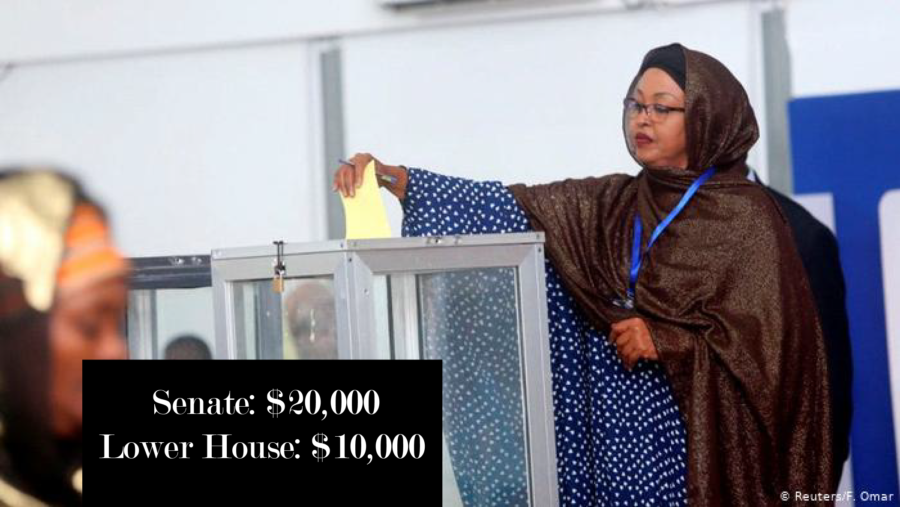Rich Man’s Election: Tall order for youth, women as poll fees skyrocket

By T. Roble
Somalis of modest means intending to run for political office in the upcoming elections may have to forego their ambitions or dig deeper into their pockets as it now emerges the November polls may after all be a rich man’s affair.
Federal and regional government leaders meeting in Mogadishu concluded Thursday the upcoming poll will require much more than just leadership skills and passion for leadership. You will need to make some serious financial considerations knowing well that there’s no guarantee for a win.
The nomination fees anchored into the Mogadishu Electoral Model recently approved by Parliament makes running for parliamentary seat virtually the dearest in the region far outmatching some of the biggest economies in the eastern Africa region.
To contest for the Lower House, one will need to part with $10,000 while those seeking a seat at the 54 member Senate will even dig deeper. They will be required to pay $20,000. These payments are non-refundable thus should you lose, you quietly reconcile with your loss.
MOST EXPENSIVE IN THE REGION
This election round’s fee is double that of 2016 which stood at $5000 for Lower House candidates and $10,000 for Senate contestants. Women and disabled persons were required to pay $2,500.
Comparably, running for election in Somalia costs an arm and a leg in relation to other countries in the region. For example, Kenya with a GDP of $88 billion which is about 40 times that of Somalia charges male candidates for the National Assembly (equivalent to Lower House in Somalia) $200 while women, youth and the disabled seeking similar positions pay $100 only.
Male candidates for Senate in Kenya are charged a nomination fee of $500 while women, youth, and the disabled part with $100. In Uganda, which has a GDP of $28 billion compared to Somalia’s $5 billion, candidates seeking parliamentary seats are required to pay a nomination fee of $809.
Inclusivity and wide participation of all Somalis in elections have been a long-running objective in the country’s political process since emergence from the civil war. Having missed the universal suffrage milestone two times now-2016 and 2020, the compromise call has been to ease the journey to leadership to allow marginalised sections of the society-notably women, youth, disabled, and displaced persons the opportunity to run for public office.
MONEY MINTING PROJECT
However, in a country where close to 70% of youth have no access to jobs and income-generating activities, where women, who are the bedrock of the country’s economy lack access to credit and are largely locked out of property ownership, a fee of $20,000 is not only prohibitive but at best ludicrous.
This election will also be a massive money-minting project for the elections committee. For example, should five candidates contest for each of the 275 seats in the Lower House, the polls committee will collect $13,750,000. For the Senate, should a similar number vie for a seat, the total nomination fees would be $5,400,000.
While election nomination fees are aimed at protecting the electoral process from being bogged down by a mass of aspirants and generate some funds to offsets other election costs, it should not appear to be a deterrent as demonstrated by the newly passed regulations.